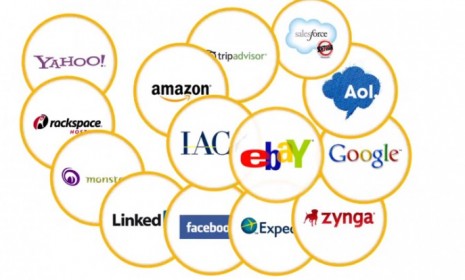Google and Facebook's new lobbying group: A force for good?
The two companies join an All-Star team of tech giants to throw their collective weight around in D.C. — which could be a boon for internet freedom

A free daily email with the biggest news stories of the day – and the best features from TheWeek.com
You are now subscribed
Your newsletter sign-up was successful
The tech world is used to seeing Google, Facebook, and Yahoo duke it out in an increasingly bloody battle for online advertising dollars. But this week, the companies showed their cooperative side, joining Amazon, LinkedIn, Monster, Zynga, and eBay to form the country's first lobbying group dedicated solely to the interests of internet companies. The who's who of tech luminaries is blandly called the Internet Association, but with its pool of big bucks, the group is sure to make an impact on Congress. Here's what you should know:
Don't tech companies already lobby Congress?
Yes, but only as individual corporations or in colloboration with groups that don't focus exclusively on internet issues. Google has led the way, spending some $9 million in lobbying in the first half of 2012, up from $3.5 million during the same period in 2011.
The Week
Escape your echo chamber. Get the facts behind the news, plus analysis from multiple perspectives.

Sign up for The Week's Free Newsletters
From our morning news briefing to a weekly Good News Newsletter, get the best of The Week delivered directly to your inbox.
From our morning news briefing to a weekly Good News Newsletter, get the best of The Week delivered directly to your inbox.
Why are they joining forces now?
The companies received a wake-up call last year, when members of Congress tried to pass two bills — the Stop Online Piracy Act (SOPA) and Protect IP Act (PIPA) — that were designed to curb internet piracy. Internet companies, however, feared that the bills "would block or punish their sites for containing pirated movies, books, and songs," says Cecilia King at The Washington Post. The battle pitted the companies against established lobbying groups for Hollywood and the music industry, convincing the tech sector to get serious about lobbying. The bills were ultimately defeated after protests from prominent sites and advocates for internet freedom.
What does the group propose to do?
The Internet Association says it will focus on the issues of piracy, copyright, privacy, and cybersecurity. The group also pledges to keep the internet as free as possible. "It is the internet's decentralized and open model that has unleash unprecedented entrepreneurialism," says President Michael Beckerman. "Policymakers must understand that the preservation of that freedom is essential to the vitality of the internet itself and the resulting economic prosperity."
A free daily email with the biggest news stories of the day – and the best features from TheWeek.com
Is this a positive development for web users?
Perhaps. Some believe that the Internet Association will be a key force in preserving internet liberties, which means that it's not "just another lobby representing the 1 percent," says David Kravets at Wired. However, "as with any lobby, the Internet Association formed to protect its own interests," says Natasha Lennard at Salon. The group will almost certainly oppose, for example, "certain privacy regulation intended to protect consumer information."
Sources: The Hill, National Journal, Reuters, Salon, The Washington Post, Wired